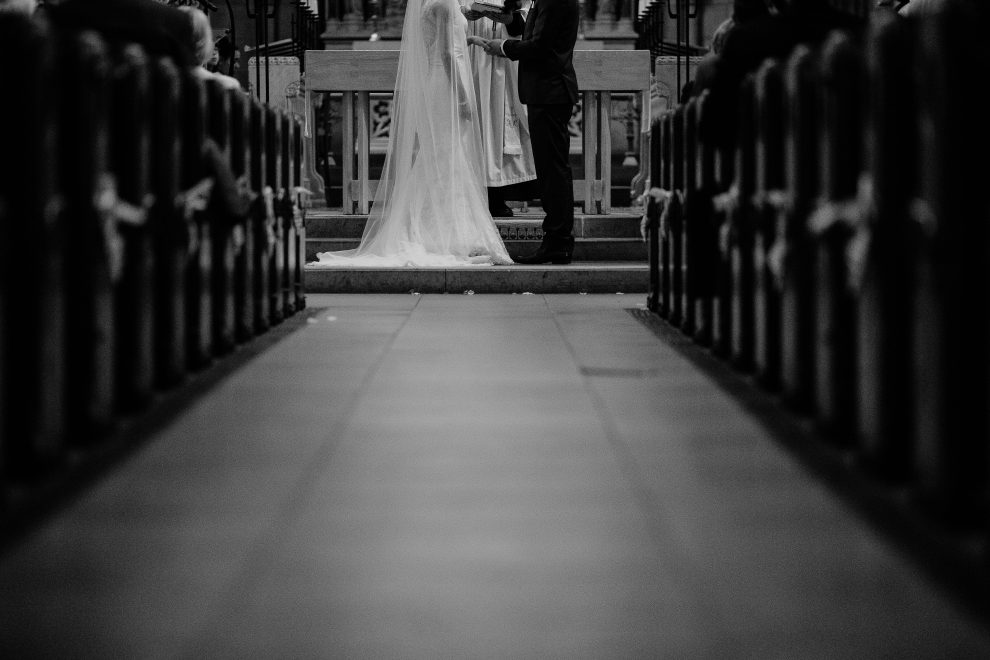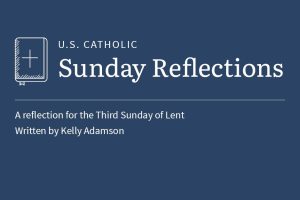Months before my wedding, my social media accounts started promoting photos of my off-the-rack wedding dress. The targeted advertising went to waste, however, as I had already purchased the dress soon after getting engaged, no arm-twisting needed. I had an easier time wedding dress shopping than perhaps anyone ever; I tried on five dresses at an hour-long appointment and bought my favorite of the bunch. I didn’t pose for a photo holding a sign that said “I Said Yes to the Dress” because what I said was more “this’ll work.”
Nevertheless the internet found out which dress I’d clicked on and continued to remind me. Photos and ads showed up everywhere online. On Instagram I even scrolled past real wedding photos of real brides wearing the exact dress. Oh God, I thought. A lot of people are wearing this dress. I suddenly understood why people buy couture gowns and scolded myself for being so hasty in my purchase.
I began feverishly Googling and found dozens of designers who sell reasonably priced couture gowns made using ethical labor. Headlines like “Exquisitely Ethical Handmade Wedding Dresses For The Modern Bride” and “Your Guide To Ethically Sourced, One-Of-A-Kind Wedding Dresses” populated my internet browser. I checked the tags on my dress. Imported. Great. My wedding dress was not only unoriginal but was also probably made in a sweatshop.
I’m certainly not the only bride to experience unwarranted wedding panic. Weddings have become extremely personalized affairs; every detail is overanalyzed in order to assure the occasion reflects the uniqueness of the bride and groom. Websites such as OffbeatBride.com encourage originality and independence instead of tradition and conformity. Many brides now even aspire to be an “anti-bride” instead of a princess. Author Phoebe Maltz Bovy writes in the Atlantic that wedding comment threads about engagement jewelry have essentially become contests over whose ring strays furthest from Tiffany: “I recently got engaged and my fiance got me a beautiful ring—3 uncut diamonds (ethically sourced) set in silver :),” writes one commenter. Writes another: “My engagement ring was a really simple ruby and gold ring that belonged to my husband’s grandmother.”
What began with a silent internal panic about the originality of my wedding dress soon blossomed into full-blown hysteria about the originality of everything else. I now not only wanted a unique wedding dress but also needed our reception to be “different,” the food to “reflect us,” the band or DJ to not play the “typical wedding music.” My now-husband, Jake, kindly humored me for several months, listening to all my reasons and justifications for changing and reevaluating this and that. But after reviewing dinner menu version No. 7, Jake finally pleaded with me to please not change anything else.
I obliged, mostly because it was now time to plan our wedding Mass—a welcome distraction from the aforementioned hysteria. When it comes to the Catholic wedding Mass, there isn’t much to plan. I quickly discovered this was going to be more of a “Pick A, B, or C” kind of thing, which was extremely different from every other aspect of our planning. There was even a book with all the reading options listed.
We flipped through pages of the curated wedding reading “options,” discussed our music preferences, and finally landed on the vows page, where we discovered there were no options from which to choose. Truthfully, I was relieved. Thank God we don’t have the option to write our own vows, I thought. Not only did I not want to spend hours tirelessly crafting something witty and original, but I also knew that if I did, I’d overanalyze and edit until an hour before the ceremony.
But then it hit me: Despite all my attempts to make our wedding original, the pinnacle moment of it all—the exchanging of vows—was so unoriginal that all our guests had likely heard them before or perhaps even said them themselves. At a time when I was feverishly trying to distinguish what made our wedding so special, the familiar vows were a much-needed reminder that weddings, by default, aren’t unique. A wedding—no matter how offbeat or low-key or ironic you make it—is still a wedding.
After months of trying to make our wedding different for no reason but the sake of being different, the rigidity of our Catholic wedding Mass was exactly what I needed to bring me back down to reality—back to where I was months before, unconcerned with originality, picking my favorite dress from the five options in front of me.
Besides restoring my sanity, there are other good and more important reasons for the lack of flexibility in Catholic liturgy and wedding vows. Namely, since marriage is a covenant between a couple and God, Catholics simply can’t write their own vows. The president of the Filipino bishops’ conference, Archbishop Socrates Villegas, recently wrote that personal expressions “should not be mixed in with the church’s liturgy because this diminishes, confuses, and spoils the action of Christ himself in the sacrament.” The liturgy does not belong to us. We can’t change it.
Try telling your average engaged couple that their wedding Mass doesn’t belong to them. If you’re a wedding vendor, you’d probably be fired. But a celebration of love and the sacrament of marriage should celebrate not the couple’s love but rather the fact that their love is of God and depends on God. “I promise to love you even when you don’t empty the dishwasher” doesn’t really do that justice.
Secondly, words matter, and although I have a degree in writing I had experienced neither a single day nor an entire lifetime of marriage. Who were Jake and I to decide what would be important for us to promise at the altar? I could certainly write genuine and loving words, but I don’t believe I could have articulated vows that address the long-term implications of married life. I fear they would have sounded more like overwritten sappy Instagram captions than an agreement between two people and God. And so we planned to recite the following: “I promise to be true to you in good times and in bad, in sickness and in health. I will love you and honor you all the days of my life.”
Jake and I weren’t the first, we weren’t the last, we weren’t even the only couple to recite those vows at that church on that day. Our vows didn’t need any extra embellishment or personal touches; our love is bigger than ourselves and is certainly bigger than we could have ever put into our own words. Thankfully, the church offers words for us to use. After 16 months of fretting, I vowed those unoriginal vows in that unoriginal wedding dress that thousands of other women apparently wore to their weddings as well. Some of them may have even recited the same vows. Cheers to them.
This article also appears in the August 2018 issue of U.S. Catholic (Vol. 83, No. 8, pages 23–24).
Image: Jeremy Wong Weddings via Unsplash















Add comment